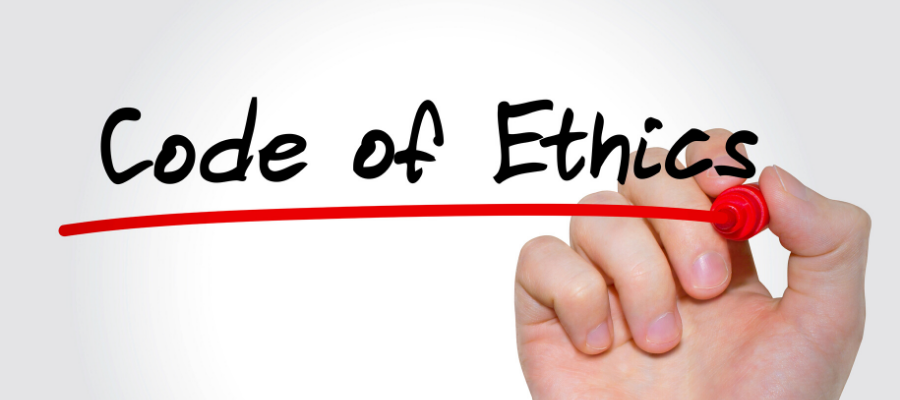
What Is It
Freedom of speech tells us the government shouldn't restrict the journalist. But should anything restrict the journalist? Should the duty to inform be limited by the duty not to betray national security, not to injure the innocent, not to corrupt the jury pool, and similar considerations? How do we draw the line? John and Ken welcome Dale Jacquette from Pennsylvania State University to delve into the ethics of journalistic practice.
Listening Notes
John kicks the conversation off by asking what role journalists ought to play in society. Guest Dale Jacquette replies that journalists are obligated to provide relevant truth telling in the public’s interest. A journalist, then, is just anyone who tries to find the facts and report them to an interested public.
John challenges this definition, he wonders whether all relevant truths ought to be reported regardless of social consequences. For example, after the shootings at Virginia Tech, NBC aired footage the killer had sent to the station. By airing the footage, NBC was reporting relevant facts about the case, but they may also have created an incentive for copycat killers. Jacquette maintains that it is the public’s responsibility to regulate news coverage by speaking out against inappropriate reporting. Ken doesn’t like this market approach to regulating journalists because the market is unreliable and imperfect. Jacquette agrees and concludes that we also need better education for journalists and federal regulations to protect us from journalistic malfeasance. Ideally, in Jacquette’s mind, journalists would regulate themselves, but realistically we need better education and legislation in addition to market pressures to guarantee quality news coverage.
Ken is still unimpressed by Jacquette’s the market approach because many of the ethical problems plaguing journalism today are rooted in the fact that all the major news networks are owned by huge corporations. Jacquette concedes that corporate ownership can create motive conflicts in the news room. Ken expands on his point, arguing that because corporate news networks are in constant competition for viewers, networks pressure their journalists to lure viewers in with sensationalist stories instead of investing in quality journalism. Jacquette disagrees, he believes that news networks can still work for the public’s interest even with corporate ownership. The ethical challenge journalists face in a corporate environment is drawing a clean line between editorializing and simply reporting the facts.
Next, John, Ken and Jacquette move on to the topic of blogs. Jacquette describes blogs as a wild west, an untamed territory of journalism that is ‘buyer beware’ in the sense that it is much more difficult to separate reliable blogged information from unreliable blogged information than it is to turn to a major news network and get the facts. Ken disagrees, he thinks blogs are better than corporate news sources because corporate news editorializes while pretending to present bare facts. Bloggers, on the other hand, editorialize openly so blogs are a more honest news source than the networks. Dale acquiesces, but notes that bloggers receive almost all of their information from the major news networks. John reconciles the two views, although bloggers receive most of their information from corporate sources bloggers are free to draw more radical conclusions with that information than corporate journalists are allowed to.
Dale agrees with John’s assessment, but he still feels ambivalent about corporations owning media outlets. He reiterates his point that it is the public’s responsibility to demand better journalism from corporate networks. Ken worries that most people demand poor quality, sensationalist news and Jacquette admits that ‘the people’ often demand entertainment more often than they demand great journalism.
At the end of the conversation, John is left a bit underwhelmed. Journalists ought to challenge the elite, which means challenging both the government and major corporations. But whether they work for a major news network or for PBS journalists’ salaries are dependent on corporations or the government’s public media budget. Ken agrees that the situation is a little depressing. But on a more optimistic note, John does feel less skeptical about bloggers and their ability to challenge the status quo.
- Roving Philosophical Report (Seek to 4:12) – Zoe Corneli talks to a journalist who was put behind bars for over 200 days.
- Sixty-Second Philosopher (Seek to 49:48) – Dishonest journalists aren’t the only ones making the news, Ian Shoales reflects on a rash of non-fiction writers charged with exaggerating the truth.




Comments (1)
gwinet
Friday, February 14, 2025 -- 9:24 AM
This makes you think, doesn'tThis makes you think, doesn't it? How can we trust the news? What is the journalist's role? It all comes down to ethics. Looking for real talk? Bet might offer some interesting perspectives on media representation. You know, finding your best bet phone number to call your representatives about media reform could help. Education and regulation are key!